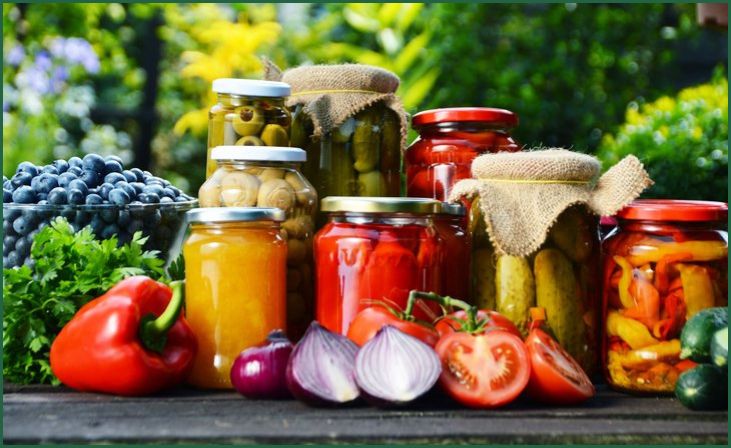Fermented foods have emerged as nutritional powerhouses with the potential to revolutionize your weight loss journey. Do Fermented Foods Help You Lose Weight, transformed through the ancient art of fermentation, offer more than just tantalizing flavors—they might be the missing link in your quest for shedding those extra pounds. Packed with probiotics and enriched during the fermentation process, these foods play a pivotal role in fostering a healthy gut, influencing metabolism, and regulating appetite.
In this exploration of “Do Fermented Foods Help You Lose Weight?” we unravel the science behind this dietary trend, providing insights into how incorporating these flavorful delights into your daily meals could be the secret weapon you’ve been searching for in your weight loss arsenal.
Get ready to embark on a journey where taste meets health, and discover the potential synergy between fermented foods and achieving your weight loss goals.
Table of Contents
ToggleUnderstanding Fermented Foods

Fermentation is a natural process that transforms foods through the action of microorganisms like bacteria, yeast, and molds. Common examples include yogurt, sauerkraut, and kimchi. This process not only preserves the food but also enhances its nutritional profile.
Nutritional Benefits of Fermented Foods
One of the primary reasons fermented foods are praised is their rich probiotic content. These beneficial bacteria contribute to a healthy gut, supporting digestion and nutrient absorption. Additionally, fermented foods are a powerhouse of vitamins and minerals, providing a nutrient boost to your diet.
Read Also: Easy Fermented Foods for Cookouts
Fermented Foods and Weight Loss

Recent studies have suggested a potential link between fermented foods and weight loss. The gut plays a crucial role in overall health, and maintaining a balanced microbiome may contribute to weight management.
Probiotics and Metabolism
Probiotics, found in abundance in fermented foods, have been associated with improved metabolism. They influence calorie burning and fat storage, potentially aiding in weight loss efforts.
Appetite Regulation
Fermented foods may be your ally in appetite regulation. The probiotics they contain contribute to a balanced gut, influencing hormones that control hunger. By fostering a healthy appetite, these foods potentially reduce cravings, aiding in weight management. Embrace the flavorful world of fermented foods to support not just your taste buds but also your journey towards a more controlled and balanced approach to eating.
Balancing Gut Microbiota
The key to the benefits of fermented foods lies in their ability to balance gut microbiota. A diverse and balanced microbiome is linked to various health benefits, including potential weight management.
Don't just scroll, subscribe!
BuzzTrail's unique web-stories are the cure for boredom you've been waiting for.
Fermented Foods vs. Processed Foods
In the battle of nutrition, fermented foods triumph over processed counterparts. While processed foods often contribute to weight gain, fermented options offer a bounty of health benefits. Choose the natural goodness of fermented foods over the pitfalls of processed alternatives to support your weight loss journey and overall well-being. It’s a flavorful choice that makes a significant difference in your diet and health.
Incorporating Fermented Foods Into Your Diet

Making fermented foods a part of your daily meals is easier than you might think. From yogurt parfait to kimchi stir-fry, there are numerous delicious and healthy options.
Cautions and Considerations
While fermented foods offer various health benefits, individuals with specific health conditions should exercise caution. Excessive consumption may lead to unwanted side effects.
Myths and Realities
Dispelling common myths about fermented foods is essential for understanding their true impact on weight loss. It’s not a magic solution, but when included in a balanced diet, it can contribute positively.
Read Also: 3 Ways to Use Lacto-Fermented Tuna
Recipes for Weight Loss
Elevate your weight loss journey with these delectable fermented food recipes. From a refreshing yogurt parfait to a zesty kimchi stir-fry, these dishes not only tantalize your taste buds but also support your wellness goals. Discover the joy of nutritious and flavorful meals that make weight loss an enjoyable and satisfying experience.
Success Stories
Real-life stories of individuals who have successfully integrated fermented foods into their weight loss journey offer inspiration and insights into the practical aspects of this dietary choice.
Future Research and Developments:
The scientific community continues to explore the relationship between fermented foods and weight loss. Keep an eye on emerging research and potential breakthroughs in this field.
Conclusion
While fermented foods aren’t a magical solution to weight loss, they can be a valuable addition to a healthy diet. The connection between gut health and overall well-being is undeniable, and fermented foods play a crucial role in maintaining that balance. Experiment with incorporating them into your meals, monitor how your body responds, and enjoy the potential benefits they may bring to your weight loss journey.
FAQs
Can fermented foods alone lead to weight loss?
Can fermented foods alone lead to weight loss?
Fermented foods should be part of a balanced diet and a healthy lifestyle. They are not a standalone solution but can contribute positively.
Are there any risks associated with consuming too many fermented foods?
Are there any risks associated with consuming too many fermented foods?
Excessive consumption may lead to digestive discomfort for some individuals. It’s essential to moderate intake based on personal tolerance.
How soon can one expect to see results from including fermented foods in their diet?
How soon can one expect to see results from including fermented foods in their diet?
Results vary from person to person. Consistent consumption, combined with other healthy habits, increases the likelihood of seeing positive changes.
Can fermented foods help with specific weight loss challenges, such as belly fat?
Can fermented foods help with specific weight loss challenges, such as belly fat?
While there’s no magic solution for targeting specific areas, the overall impact on metabolism and gut health may contribute to a reduction in overall body fat.

